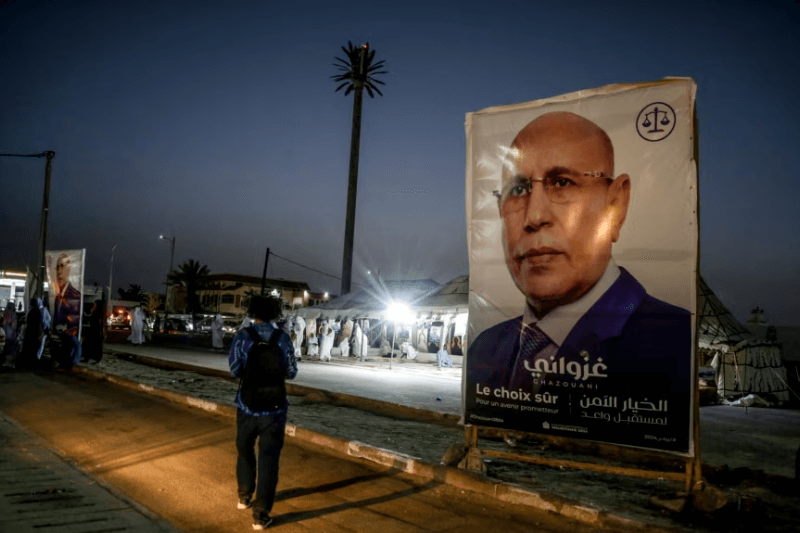Following his Saturday national poll victory, Mauritania’s President Mohamed Ould Ghazouani has confirmed his re-election for a second term. He won the first round with a substantial lead and 56.1% of the votes.
Anti-slavery campaigner Biram Dah Abeid, his major rival, got 22.1% of the vote and has challenged the outcome, claiming fraud. With a 55% voter turnout out of the 2 million qualified voters, the nation’s independent electoral commission (CENI) confirmed the results on Monday. Now the constitutional court will check the figures before declaring the official outcomes.
The CENI spokesman, Taghioullah Ledhem, said that so far, no official complaints have been received or any anomalies have been found. Some opposition candidates, on the other hand, have questioned the commission’s objectivity. Political party representatives make up the panel; its president is chosen by the government, which fuels charges of cooperation with Ghazouani’s government.
Claiming to be the actual winner, Abeid attacked the interim results as an “electoral coup d’état” meant to help Ghazouani. He accused the electoral commission of purposefully giving Ghazouani thousands of votes “out of nowhere.” Speaking from his Riadh mansion, Abeid urged military and security personnel not to be controlled by the government against the people and urged civil disobedience against the government. Emphasizing that the fight is not finished, he said the people will keep resisting right until the very end.
Keep Reading
Former army head Ghazouani is still well-liked among Mauritanians, who see him as a symbol of stability, even if his opponent claims mismanagement and corruption. The election took place amid regional unrest as military coups and Islamist activity rocked surrounding nations.
Among the many natural resources Mauritania boasts are iron ore, copper, zinc, phosphate, gold, oil, and natural gas. With the expected start of the BP-operated Greater Tortue Ahmeyin offshore gas project on the Senegal border by year-end, the nation is poised to become a gas producer. Still, almost 60% of the population lives in poverty and works mostly in farming or unofficial employment. Many young people are looking for chances in Europe since their local economic possibilities are restricted; others are even trying to reach the United States through Mexico.
With Ghazouani’s triumph, Mauritania’s status as a major West ally in an area beset with unrest and violence is strengthened.

